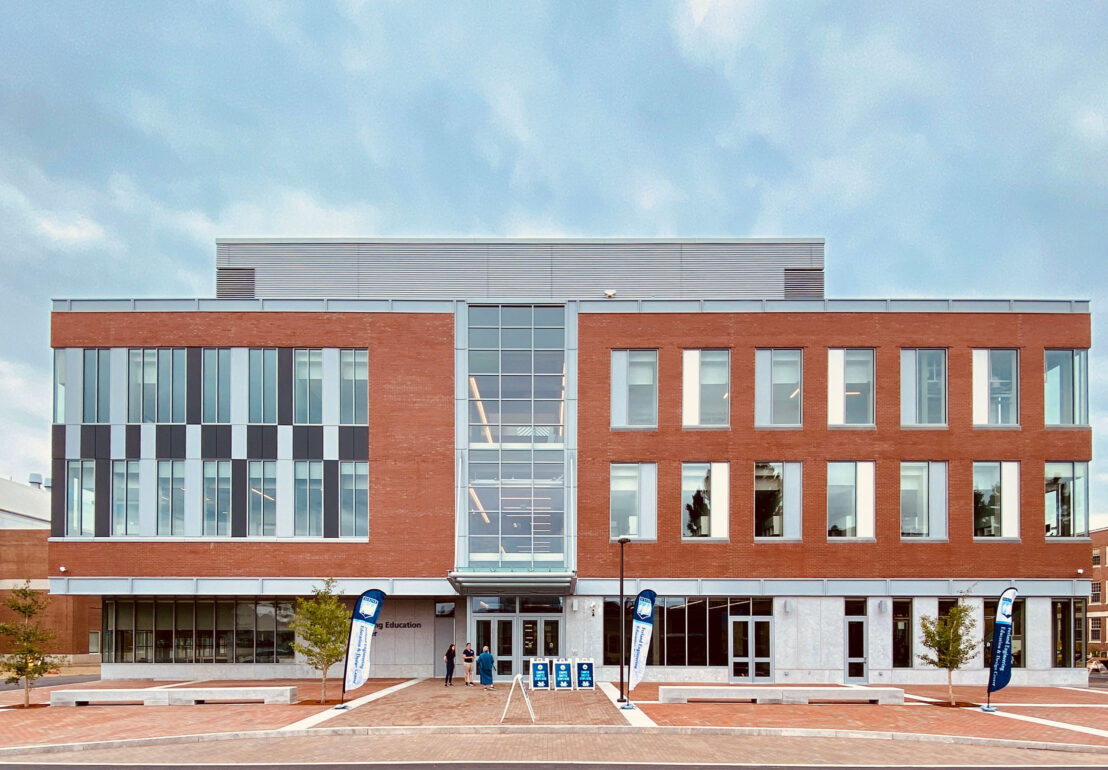Flexibility in research lab design
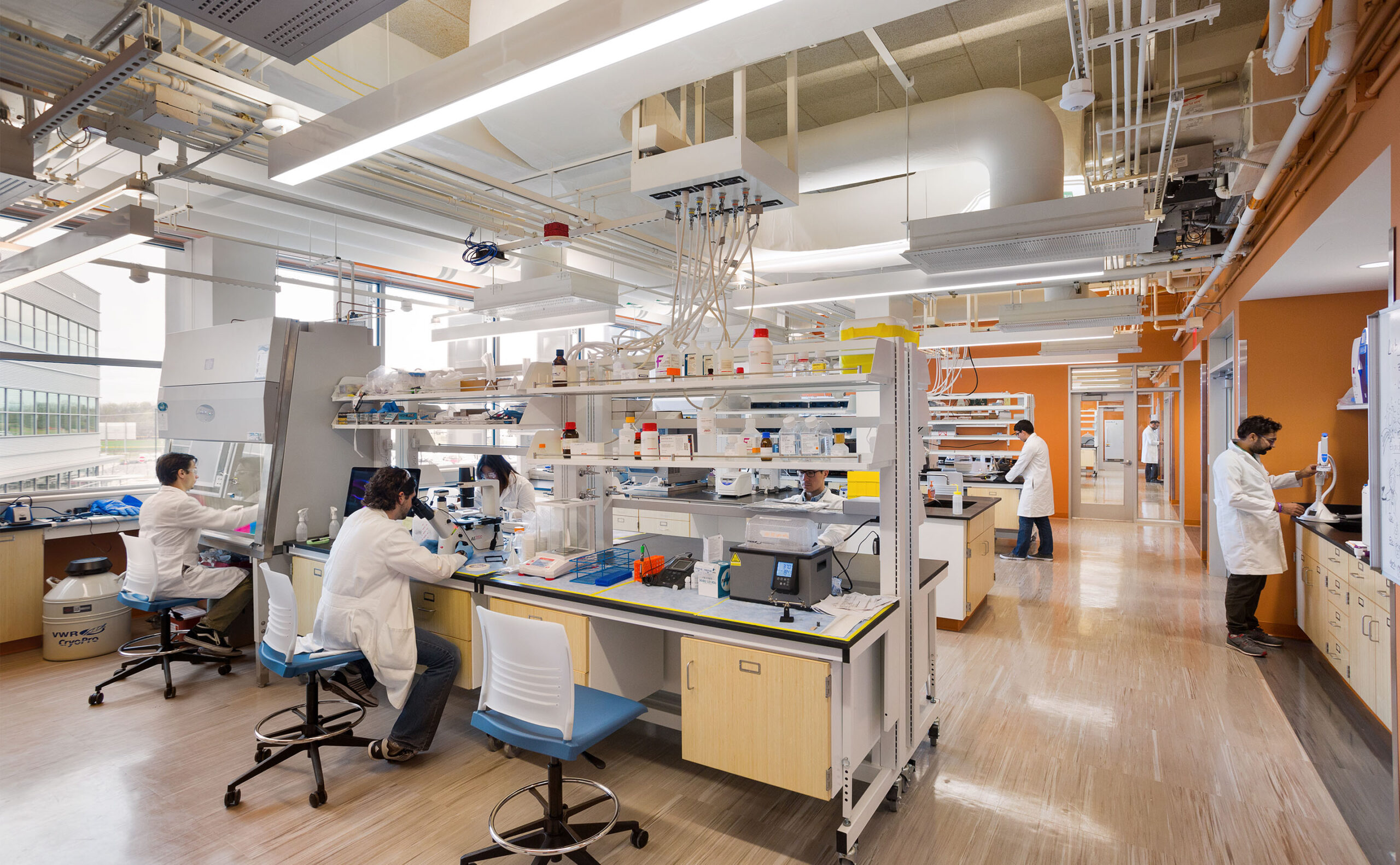
Rowan University, Biomedical Engineering Research Lab
- Tags
- Design for discovery
At Ellenzweig, our approach to designing research buildings for science and engineering is based upon the fundamental principle that versatility is the essential foundation for future lab environments. Driven by ever-changing multidisciplinary and convergent research platforms and the need for a wide array of scientific equipment and instruments, future research buildings require advanced levels of flexibility and adaptability to address today’s needs as well as the unpredictable needs of the future. As programmers and planners of buildings for science, we are often faced with the challenge at the onset of our projects that our clients have little or no understanding of who will occupy these buildings or what types of activities will take place in the laboratories. Even if we knew who would use the buildings and what they would be doing inside, both would likely change in a matter of time.
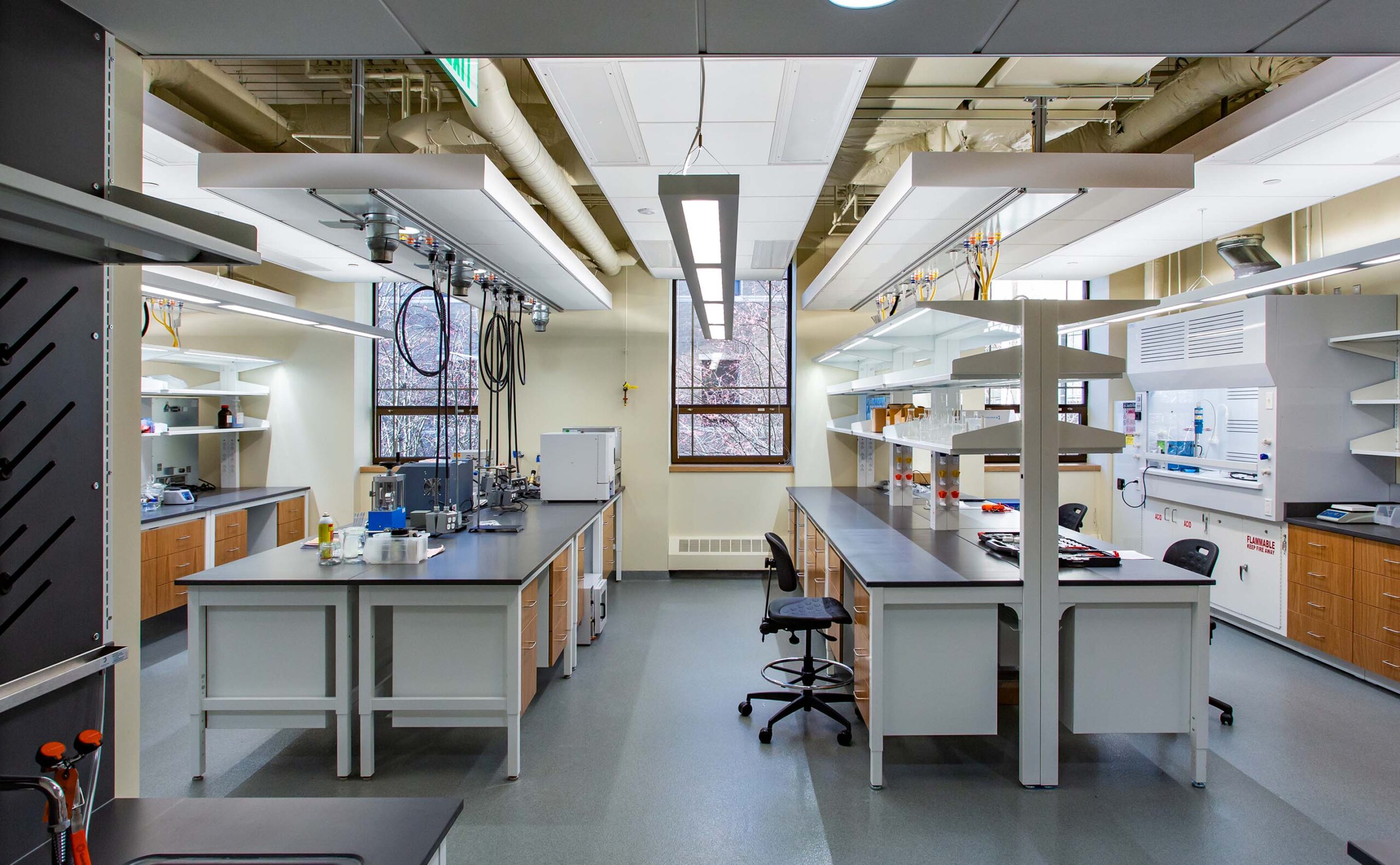
Boston College, Merkert Chemistry Center Renovation
Traditionally, buildings designed for specific scientific disciplines had clear functional needs. That model has completely changed, and new lab designs need to be designed and engineered to be inherently versatile, expandable, and readily adaptable to whatever the future may bring. How do we accomplish this?
We design contemporary labs with flexible systems at every scale of the project: from mobile bench and lab storage systems, to flexible overhead service and equipment carriers, to adaptable building floor plates and infrastructure systems that can provide a full array of lab services to any lab space, regardless of initial function.
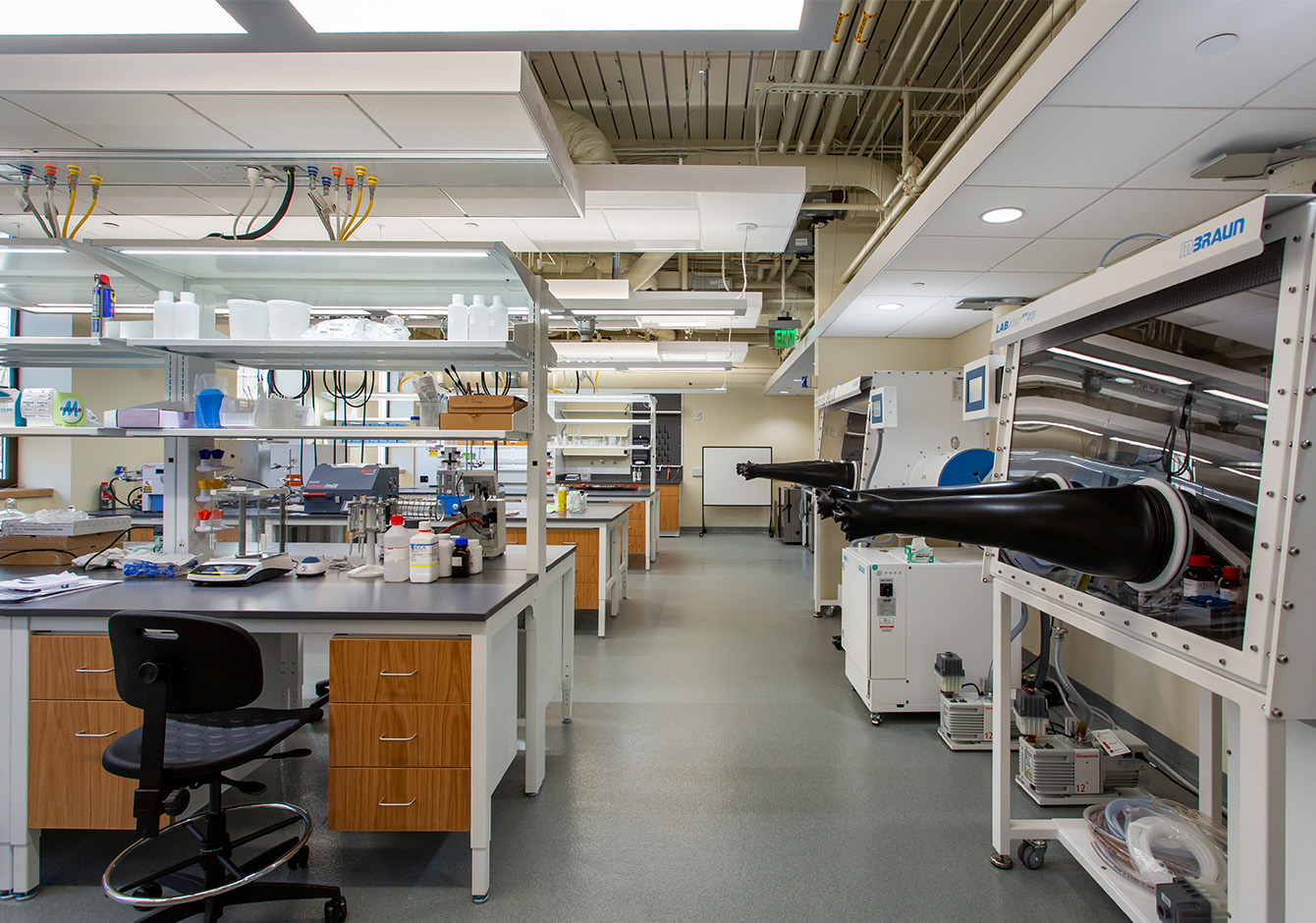
Boston College, Merkert Chemistry Center Renovation
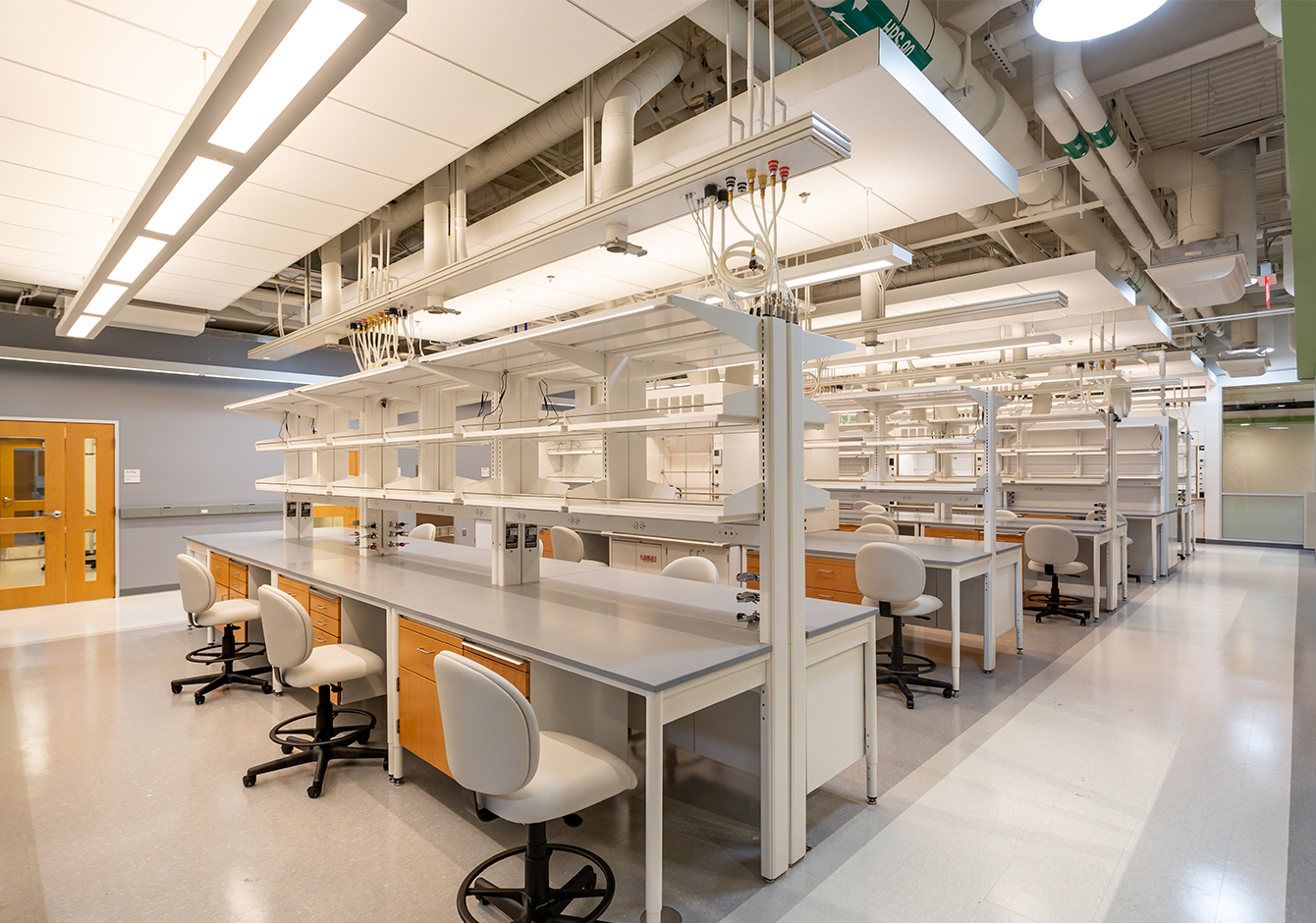
Yale University, Energy Sciences Center II Renovation
At Boston College’s Merkert Chemistry Center, we designed overhead multipurpose lab services and instrument carriers. This innovative and highly versatile ceiling system has been designed and engineered to accommodate all types of ducted, piped, and wired lab services. The slotted aluminum framing system enables a virtually unlimited number of uses enabling the bench researcher to set up their benchtop activities and supporting equipment, instruments, and supporting devices in an almost unlimited number of arrangements.
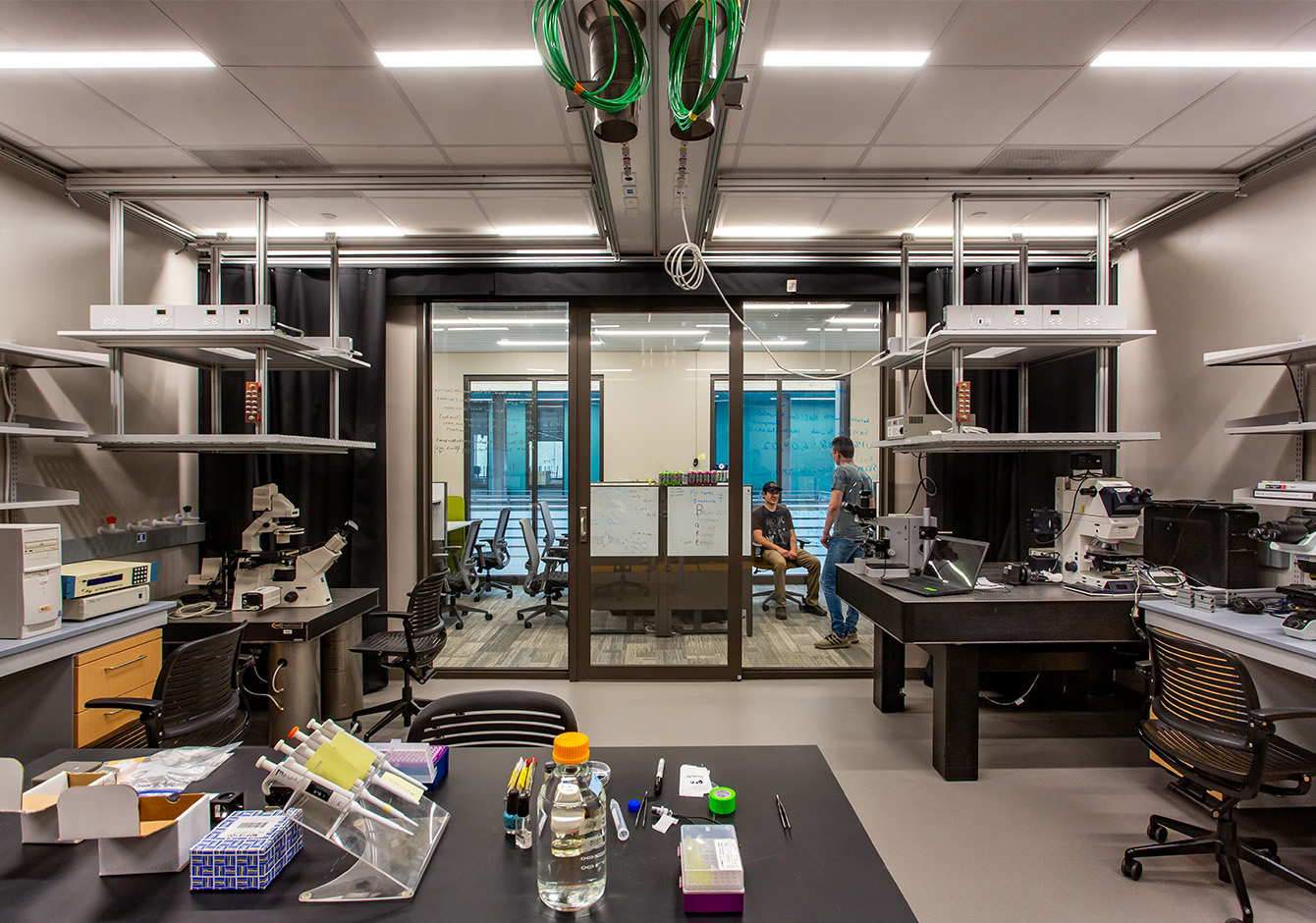
University of Maine, Ferland Engineering and Education Design Center
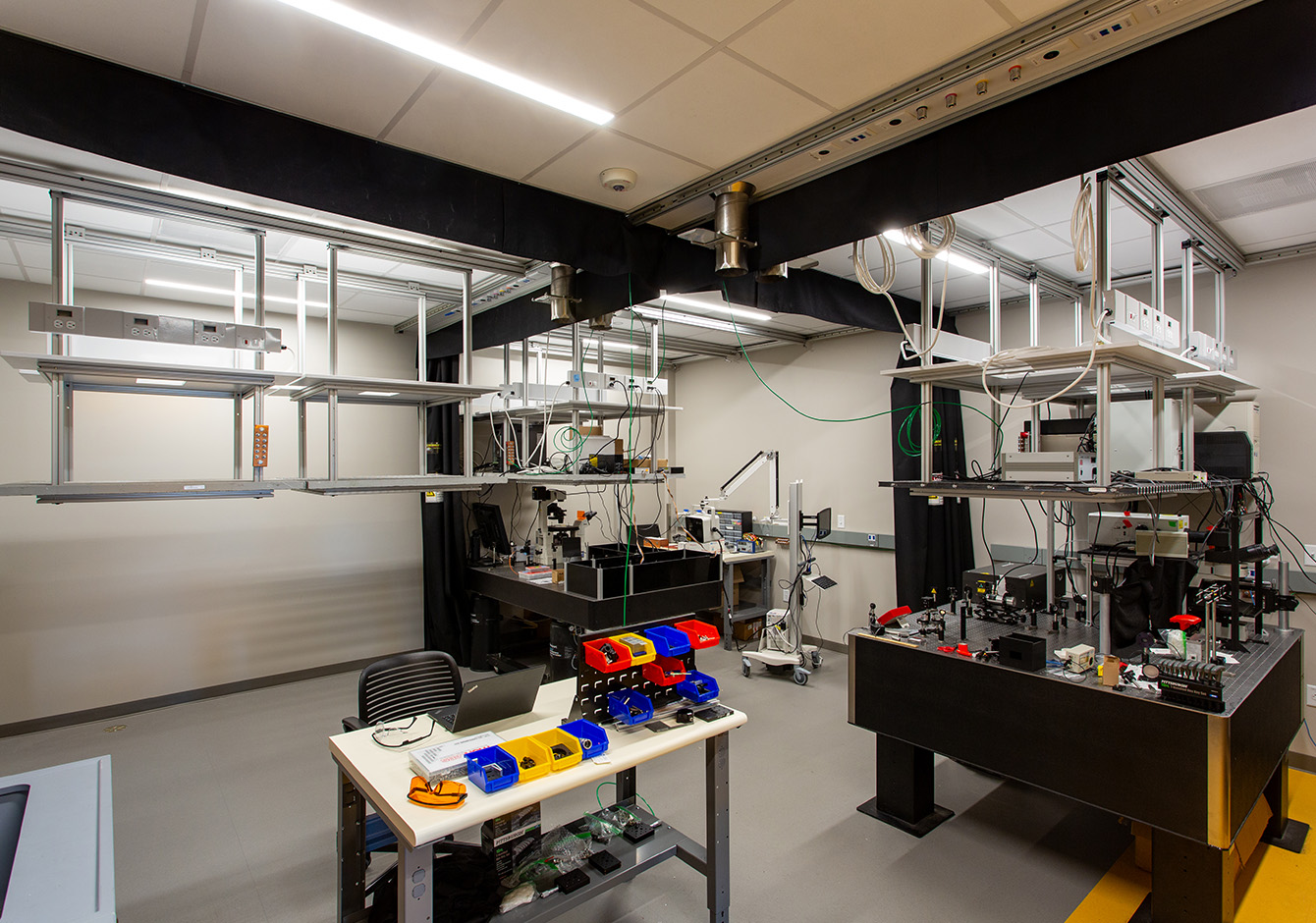
University of Maine, Ferland Engineering and Education Design Center
For the University of Maine’s College of Engineering and Yale University’s Energy Sciences Institute, we designed an overhead mobile equipment rack system. This readily adaptable, ceiling-mounted mobile rack can be moved in all four plan directions to relocate equipment as required over the life of the lab. The system has been engineered to accommodate equipment loads upwards of 300 pounds and is equipped with several types of piped and wired lab services.
Ellenzweig has a rich tradition of providing our clients with thoughtful and innovative solutions to the challenges they face in accommodating the evolving needs of their scientists and engineers.
